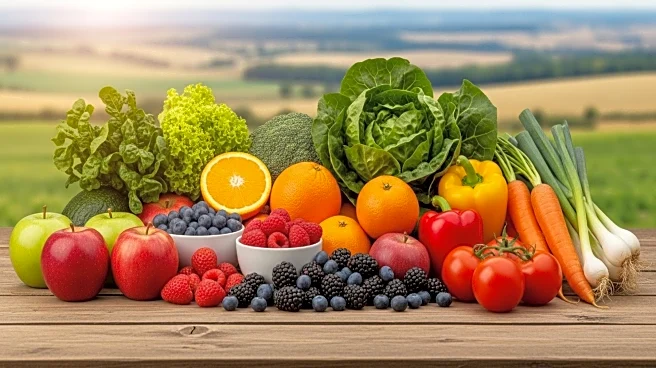What is the story about?
What's Happening?
The European Union has approved a draft version of its trade deal with the Mercosur bloc, consisting of Brazil, Argentina, Paraguay, and Uruguay. The agreement aims to reduce or eliminate tariffs on various products, including wines, spirits, chocolate, and soybeans. It also protects 344 European geographical indicators and upholds EU animal welfare standards for imports. The deal marks a significant step in reducing trade barriers and promoting cooperation between the two regions, although it still requires approval from the European Parliament.
Why It's Important?
The EU-Mercosur trade deal has wide-ranging implications for the food and agriculture sectors. By reducing tariffs, the agreement facilitates increased trade and market access for European products, potentially boosting economic growth. It also reinforces the EU's commitment to high standards in food production and animal welfare, ensuring that imported goods meet these criteria. The deal's emphasis on geographical indicators protects European heritage products, supporting local economies and cultural preservation.
What's Next?
The next step for the EU-Mercosur trade deal is approval by the European Parliament, which will determine its final implementation. Stakeholders in the food and agriculture sectors will need to prepare for changes in trade dynamics and market opportunities. The deal may also prompt discussions on aligning production standards and addressing environmental concerns, such as deforestation and antimicrobial resistance. Continued collaboration between the EU and Mercosur will be essential to maximize the benefits of the agreement.















